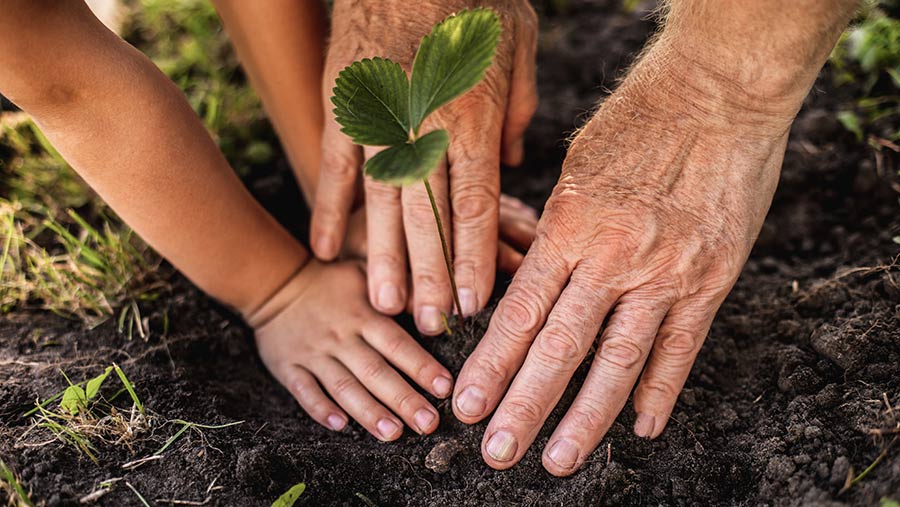Opinion: An alternative model for succession planning
 © Yakobchuk Olena/Adobe Stock
© Yakobchuk Olena/Adobe Stock I have been on loads of farm tours and I always love seeing how farmers think and operate on their own turf.
On every farm I have ever visited, whether large or small, in the UK or overseas, I have always learned something valuable to take home.
There is an unspoken code that you should share information as willingly as you harvest it and so I try to do my fair share of hosting farm visits, too.
Even in horticulture, which is hugely competitive, I find one gains more from being open and provoking discussion than from secretively hoarding ideas.
See also: Opinion – views split over jailing of Herefordshire farmer
We recently gave a farm tour to a large group of farmers from the West. I made a point about succession planning, which struck a chord with them and so I thought I might explain it here.
There will be a number of older readers who are conflicted about how to handle their estate after their death. Their dilemma is common.
We all start our careers working hard, investing all our money in our farms and, five minutes later, we’re 65 with a chunky balance sheet but few savings.
We might have a child who depends on the farm for their livelihood and another who can’t afford to buy a house to live in.
The old-fashioned and patriarchal system of “one day, son, this will all be yours” falls short in the modern world.
It’s unfair on the child who is required to work hard for less than their market value in the hope that riches will eventually follow. It’s also unfair on the short-changed, non-farming siblings.
My view is that we should treat our assets with a rentable value – such as land, buildings and tractors – differently to the assets that we have tied up in our growing and trading activities.
Both of these asset classes should be individually generating profit. If they don’t, then you are arguably carrying out a hobby and not running a business.
Logically, a farm that owns land or buildings should be more profitable than one that rents them, and the difference between the two equates to your return on your invested capital.
The business model I favour is to put your property into one company and put the growing and trading activities into another. The trading company should then have a tenancy and pay a market rent on the property.
The benefit of this structure is that you can leave shares in that “property company” to non-farming children and they get paid a fair return without influencing or impacting on the farm business.
You can even weight matters to favour a child who is actively farming through the terms of the tenancy and shareholder agreements.
It works best of all when the farming child eventually decides to buy out the other shareholders rather than pay rent.
The alternative orthodoxy, where a farming child gets given most of the farming assets, often has the perverse effect of discouraging them from trying to make a good return on invested capital.
Turning this on its head and obligating them to think about the profitably of their activities is a better method and bears a far greater chance of long-term success.

